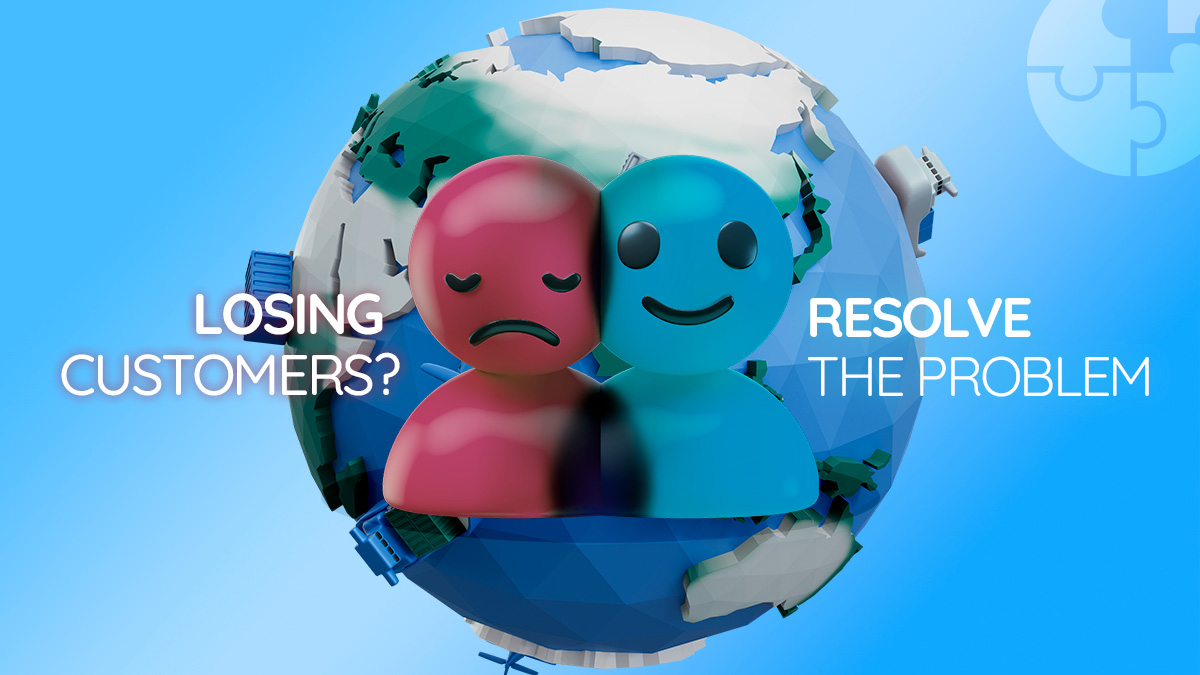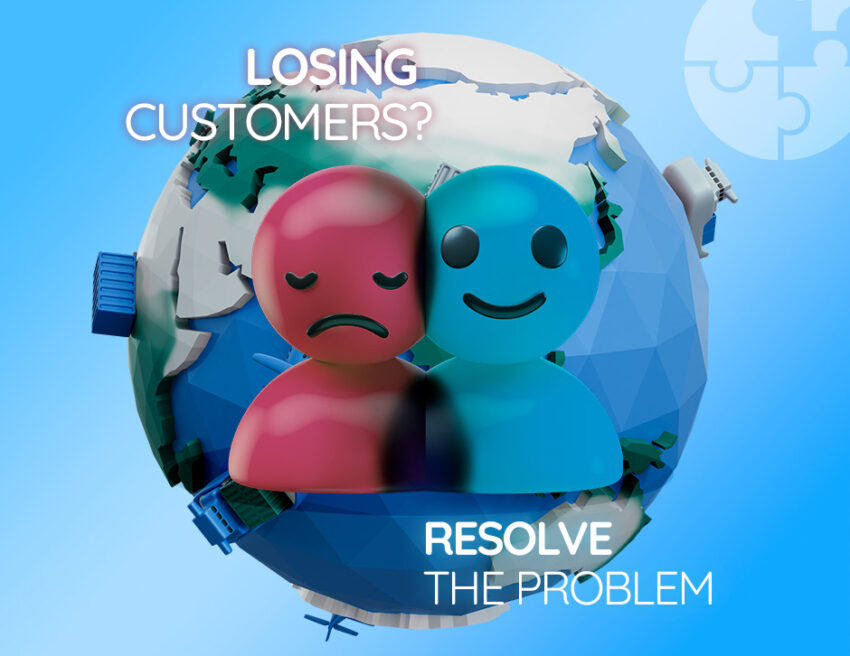In the highly competitive logistics industry, retaining customers is as critical as acquiring new ones. Several factors contribute to customer attrition, and understanding these reasons can help logistics companies implement effective strategies to improve customer satisfaction and loyalty. This article explores the primary reasons why logistics companies lose customers and offers solutions to address these issues.

1. Bad Customer Service
Problem: Bad customer service is one of the leading causes of customer loss in the logistics industry. Customers expect timely, professional, and helpful interactions. Poor communication, unresponsiveness, and unfulfilled promises can lead to dissatisfaction and drive customers to seek alternatives.
Solution: To resolve this issue, logistics companies must invest in comprehensive customer service training for their staff. Emphasize the importance of empathy, active listening, and problem-solving skills. Implement a robust customer relationship management (CRM) system to track and manage customer interactions, ensuring that no inquiry goes unanswered and all issues are resolved promptly. Regularly seek feedback from customers to identify areas for improvement and make necessary adjustments.
2. Confused Pricing
Problem: Confused or non-transparent pricing can frustrate customers and erode trust. When customers do not understand the pricing structure or feel they are being overcharged, they are likely to switch to competitors with clearer pricing policies.
Solution: Implement a straightforward and transparent pricing model. Clearly communicate all costs involved, including any additional fees, to avoid surprises. Utilize The Cooperative Logistics Network’s member-exclusive freight quote generation platform to streamline and clarify the pricing process. This tool helps members create accurate and detailed quotes quickly, providing customers with a clear understanding of costs and building trust in the process.
3. Delayed Responses
Problem: In the fast-paced logistics industry, delayed responses to inquiries and quote requests can result in lost business opportunities. Customers expect quick and accurate information to make informed decisions.
Solution: Utilize advanced technology to enhance responsiveness. FreightViewer, a digital tool offered by The Cooperative Logistics Network, allows agents to respond to quote requests immediately. By integrating this platform into your operations, you can provide instant, accurate quotes, improving customer satisfaction and reducing the risk of losing business due to slow responses. Additionally, establish clear response time guidelines and ensure all team members adhere to them.
4. Lack of Personalization
Problem: A one-size-fits-all approach to logistics services can alienate customers who have specific needs and preferences. Lack of personalization can make customers feel undervalued and prompt them to seek out providers who offer tailored solutions.
Solution: Focus on building personalized relationships with your customers. Take the time to understand their unique requirements and preferences. Offer customized logistics solutions that address their specific challenges and goals. Implement a CRM system to keep track of customer preferences, past interactions, and special requests, allowing your team to provide a more personalized experience. Regularly check in with customers to ensure their needs are being met and to identify opportunities for further customization.
5. Resistance to Change
Problem: The logistics industry is constantly evolving, and companies that resist change risk falling behind. Resistance to adopting new technologies, processes, or market trends can lead to inefficiencies and customer dissatisfaction.
Solution: Embrace change and foster a culture of innovation within your organization. Stay informed about industry trends and emerging technologies, and be willing to adapt your operations accordingly. Encourage continuous learning and professional development for your staff to ensure they are equipped to handle new challenges and opportunities. By staying agile and responsive to change, you can improve efficiency, enhance customer satisfaction, and stay ahead of the competition.
6. Resistance to Digitization
Problem: In an increasingly digital world, logistics companies that resist digitization may struggle to meet customer expectations. Manual processes are often slower, less accurate, and more prone to errors, leading to delays and dissatisfaction.
Solution: Embrace digitization to streamline operations and improve customer service. The Cooperative Logistics Network is helping its agents digitize their operations with their freight quote generation tool, FreightViewer. This tool allows logistics companies to automate the quote generation process, reducing errors and saving time. By integrating digital solutions into your operations, you can enhance efficiency, improve accuracy, and provide customers with a seamless experience. Invest in digital training for your staff to ensure they are comfortable and proficient with new technologies.
Conclusion
Customer retention is crucial for the success of freight forwarding companies. By addressing common issues such as bad customer service, confused pricing, delayed responses, lack of personalization, resistance to change, and resistance to digitization, companies can significantly improve customer satisfaction and loyalty. Leveraging advanced tools and technologies, such as those offered by The Cooperative Logistics Network, can streamline operations, enhance communication, and provide customers with the exceptional service they expect.
Implementing these strategies requires commitment and ongoing effort, but the rewards are well worth it. By focusing on the needs and preferences of your customers, embracing change, and investing in digital solutions, your logistics company can build stronger, more lasting relationships with your clients, ensuring sustained growth and success in a competitive industry.


